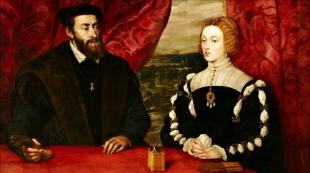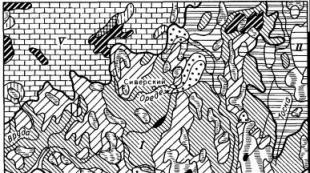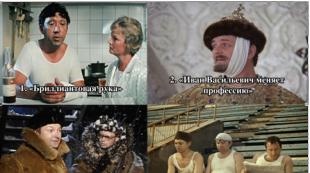Orthodoxy is a branch of Christianity. Religion. The joy of being human
This article is devoted to the fertile Christian theme. How can a child understand what it means to be an Orthodox person? On the one hand, this is a very difficult question, and on the other hand, everything can be explained only by examples from life.
Books and classes alone will not be enough. How can a student instill love for God and neighbor? This will be discussed below.

Adults are an example for children
The child is born without sin. After all, a newborn cannot offend, offend and hate someone. From the age of three, when the baby is already beginning to pay attention to the world around him, to get to know him, his worldview is formed according to what is here and now.
After 3-5 years, the child begins to learn both good and bad. Often, children begin to fight in the sandbox, call bad names. Where does it come from? Even if one child has a friendly family, but the other has a mother and father who constantly quarrel, the latter can now copy the behavior of his parents and pass on the negative to his friends in the sandbox. And so the chain develops.
Starting from the age of 7, a child should be able to distinguish good deeds from bad ones. What does it mean to be an Orthodox person? The answers to this question lie just in the actions of any person.
Good heart and good deeds
An Orthodox Christian often comes to a priest in a temple to repent of sins. Which ones? In all. Sins mean not only bad deeds (hit, killed, stole), but also a state of mind (hatred, anger, irritation, envy). Parents should themselves be kind, affectionate and caring people. Is it Christian when a mother screams at a child, beats, and he roars at the whole area for an hour? Of course not. If the child was naughty, then parents should act wisely, punish carefully and without scandals. Often children inherit the character and habits of their parents.
A child from the age of seven is allowed to confess. What does it mean to be an Orthodox person in this case? To love the Lord God and all people, animals, birds. After all, love is manifested not only in care, but also in compassion, help, and consolation.
The Apostle Paul at one time explained what Christian love is, how it is expressed. Namely: love cannot envy, demand, adjust to itself, hate, exalt itself over someone, rejoice at the sorrows of the neighbor or be upset when he is happy. The holy apostle said many more words on this subject.
How to write an essay
Not every school teachers touch on the topic of Orthodoxy. It is especially difficult to accept this for a child who grew up in an atheistic family or who was brought up by non-Christians, including Old Believers. How, then, can we carefully explain to children what it means to be an Orthodox person? The answer for the 4th grade, where children still understand little not only in spiritual life, but also in everyday life, can only be given by actions. How? Teach them to treat each other with respect. Practically in any class there are pranks, quarrels, insults. It is important to teach children to respect each other. Who in the class constantly offends someone? Let the offender understand that this is not the way to do it. He needs to explain what mental pain is. The offended should be advised not to give in, immediately forgive, forget and make peace. After all, evil tends to inflame, burn very painfully.

A small essay "What does it mean to be an Orthodox person?" help children develop a sense of comprehension. What does it mean? Not every adult understands why he lives. It's time to think about what life should be like in order to live it usefully. It happens that an elderly person before his death admits that he does not want to die and is afraid, because he did little good, did not repent before God, and in general he never thought about Him. The soul of the dying feels that it is to the Lord that she will go to judgment.
Let children learn from an early age to love God and their families, friends, and even enemies. After all, Jesus Christ loved and loves absolutely everyone, even those who killed him.
The Importance of Going to the Temple
Adults do not always think about why they visit the temple. Is it just because it's necessary? This is wrong thinking. There is a funny caricature on the Internet: a temple is drawn on the left and right, on the right - the inscription "to the temple" - and hundreds of people are standing, on the left it is written "to God" - and only five people are standing. What does it say? Hundreds of people go to church just to light candles, write notes, chat. And that small part of people comes to the temple to pray to God.

Children need to be taught to communicate with the Lord, to pray. This will help pre-preparation. For example, the children's Bible and the lives of the saints. They speak beautifully about what it means to be an Orthodox person. For children, everything should become interesting, otherwise there will be no sense.
Obedience
It is important for a Christian to be in obedience to someone. It is impossible to go with the flow without guidance from above. A small child must obey his parents, educators. If not, he will be in danger. The soul of an Orthodox person is also in danger if he undertakes to independently lead himself in life. To prevent this from happening, you need to have a spiritual mentor in the person of a parish priest or an elder, for example.
It is important for children to obey not only their relatives, but also the priest in the church. What does it mean to be an Orthodox person during obedience? For example, a priest in confession will tell a child to stop offending a classmate, because this is bad, God does not like his act. This is obedience from a spiritual father. Parents can say the same. And that will be obedience. But why it is impossible to offend a classmate from a spiritual point of view, the priest can explain.
Once again, we can remind you of the importance of presenting your thoughts and ideas. What does it mean to be an Orthodox person? Let the children write an essay-reasoning on a similar topic specifically about the kindness of the heart and love for God.
Lives of the Saints

An excellent example of the Christian life will be the lives. What is this? To be brief, this is a biography of a holy man. But such a work is written not as simple information, but as a textbook of life for Orthodox Christians who want to learn how to live for real. A holy man in life pleased God, served Him. The author talks about this, gives examples of his exploits, good deeds and, of course, talks about miracles. It is important for a contemporary to know what it means to be an Orthodox person. A summary of the lives of the saints will help to understand. There is no need to delve into ascetic teachings to understand what love for God and neighbor is.
Both children and adults, if they wish, can become Christians. It is important to remember that love starts small. The world around needs good people. The Holy Church will tell about what it means to be Orthodox, teach it through the Gospel, the lives of the saints.
We continue the conversation on the topic: "To be Orthodox!", started by the ruling bishop of the Maykop and Adyghe diocese, Bishop Tikhon. We received a letter, unfortunately, without a signature, with an opinion on this issue. We saw fit to include it in our discussion.
What does it mean to be Orthodox?
Unfortunately, this question is not answered by the majority of modern people living in our country, although many of them identify themselves with the faith of the fathers, and if an answer is given to the question posed, it often does not correspond to the teachings and experience of the Church. The beauty and depth of the Orthodox faith remains invisible to the majority. Many people prefer to float on the surface around the outside ritual side, superstitions and myths associated with Orthodoxy.
In the Holy Gospel, our Lord and God Jesus Christ says: “Not everyone who says to me, Lord, Lord! He will enter the kingdom of heaven, but he who does the will of my Father in heaven. Many will say to me that day: Lord, Lord! Have we not prophesied in Your name? And was it not in your name that demons were cast out? And did not many miracles work in your name? And then I will declare to them: I never knew you; depart from me, you who work iniquity (Mt. 7:21,23).
The Holy Fathers give us an explanation of the Gospel words. So, St. Gregory Palamas says: “That we truly believe in God, let it be revealed on the basis of our deeds and the observance of God's commandments. And the fact that we Orthodox believe in God, that is, beautiful, affirmed, piously think about Him; let us show that we are of one mind with our God-bearing Fathers.”
“Do you see a dry branch on a tree,” writes St. Tikhon of Zadonsk, “which has dried up because it does not have juice that revives it? And a Christian becomes a withered branch, if he does not have a living faith, showing his vitality through love and other fruits. Such has no part with Christ, who is the true vine (John 15:1), and with true Christians, who are the members of His body (Eph. 5:30). .
It happens that a person who does not have a constant spiritual exercise, feat, asceticism, stands together with others in the temple, is baptized, bows, but spiritually he is dead. Such, sooner or later, departs from the community, from the temple. He admits that Christ exists, but lives on his own, remembering God, the Church, his soul only from time to time. It’s good if he still remembers, otherwise, it happens that he just mechanically comes to the church for the holidays or in order to baptize his children, because the parents insisted, or then to bless the Easter cake or collect Epiphany water.
The fact that it is necessary to confess faith not only in word, but also in deed, is written in many places of Holy Scripture:
1. He who does not take up his cross and follow Me is not worthy of Me. He who saves his soul will lose it; but he who loses his life for my sake will save it. (Matthew 10:38-39)
2. Whoever says: "I have known Him", but does not keep His commandments, is a liar, and there is no truth in him; but whoever keeps his word, in him the love of God is truly perfected: by this we know that we are in him. Whoever says he abides in Him must do as He did (1 John 2:4-6).
3. If we say that we have fellowship with Him, and walk in darkness, then we lie and do not act in truth; but if we walk in the light, as He is in the light, then we have fellowship with one another, and the Blood of Jesus Christ His Son cleanses us from all sin. (1 John 1:6-7)
4. If you keep My commandments, you will continue in My love, just as I have kept My Father's commandments and continue in His love. I have said this to you so that my joy may be in you, and your joy may be full. This is my commandment, that you love one another as I have loved you. There is no greater love than if a man lays down his life for his friends. You are My friends if you do what I command you. (John 15:10-14).
We know that any problem starts with a specific person. The source of a number of problems in modern church life is the large number of unchurched people. Very many today recognize themselves as Orthodox, but live outside the church tradition, outside of Christian morality. The man was baptized, put on a cross, but consciously he did not become a Christian. In baptism he was born to a new life, life in Christ. But since a person does nothing to grow spiritually, even after baptism his whole life remains completely immersed in vanity and secular pursuits, he becomes spiritually stillborn. Nowadays, in the so-called "Orthodox countries", it is widely accepted that almost everyone is considered a Christian. Only a few people refuse this “title”. For example, in Russia, most people position themselves as members of the Orthodox Church. In Bulgaria and Romania, most residents consider themselves Orthodox (and only a few officially identify as non-Christians). Are they all really Christians?
In the Christian worldview, only the person who sees his spiritual and moral imperfection, his sinfulness, suffers from it and seeks salvation can be and is Orthodox. Only a person who has humbled himself within himself is capable of correct, that is, saving faith, in Christ. Saint Ignatius Brianchaninov emphasizes: “It is not in the rational faith that Christ came, suffered, and rose that the beginning of conversion to Christ, for the demons believe and tremble, but, on the contrary, faith itself is born from the knowledge of one’s sinfulness, one’s fall.”
FROM THIS FACT WE CAN SAY WITH CONFIDENCE THAT ORTHODOX, FIRST OF ALL, IS THAT PERSON WHO FEELING THAT HE IS SICK AND APPROACHES TO THE DOCTOR OF OUR SOULS AND BODIES TO CHRIST THE SAVIOR.
Next, we will talk about the assertion that Orthodoxy is a religion of weak and infirm people who are afraid even of their own shadow and are not really capable of anything. Such an opinion can be easily refuted if we turn to the history of the Orthodox peoples, where people of the Orthodox spirit entered the arena of the main events. They made fateful decisions for their country and their people at dramatic moments in history and led people. Many of them are canonized by the Church as saints. For example, Alexander Nevsky, Sergius of Radonezh, Patriarch Hermogenes, Dimitry Donskoy, Joseph Volotsky and many others.
It can also be said with confidence that a person who brings his “I” to the periphery and puts God at the center of his life can be called a courageous person, because from the examples of life we call the best those people who sacrifice themselves for others. Such people, their self-sufficient "I" try to curb and put their interests on the altar for their neighbors in accordance with the law of love. Such behavior fully reflects the commandment of Christ about sacrificial love for neighbors, and hence the Orthodox understanding of the problem. All the more courageous are those who sacrifice their habits and pleasures for the sake of God.
Often those people who claim that Orthodoxy is the lot of the weak have never lived according to the gospel guidelines, but those who profess the principles of Christian life with their lives, remembering their life outside the Church and comparing their lives while in it; they will always say with confidence: to be Orthodox means to be a strong person! For Orthodoxy calls to overcome the passions in oneself, which stand as a barrier between man and God. And therefore the fight with oneself is the most difficult fight, and the victory of victories is the victory over oneself!
An Orthodox person is one who understands that you need to go to church not only to light a candle in front of an icon or order magpies. He understands that nothing can be bought in the church. For one simple reason: the church is the place where gifts are distributed. Not humanitarian aid, of course, not some special orders. No need to line up, take a seat in advance, there is no VIP zone, just the CHURCH - THIS IS WHERE CHRIST GIVES THE GIFTS. And that the most important gift THAT GOD BRINGS TO MAN - HE BRINGS HIMSELF. AN UNBEARABLE, DIFFICULT, IMPOSSIBLE GIFT FOR EACH OF US. You cannot pay for the most important thing in the church - for the mercy of God, for the love of God, for the opportunity to be heard, for the opportunity to be forgiven. YOU CANNOT PAY FOR THAT YOU ARE UNITED WITH CHRIST. But this is the most important thing.
To be Orthodox means to clearly understand what is important and what is secondary. Understand that we can ask God not only for good health, success in work and happiness in our personal lives, for God's mercy is not limited to this. In addition, if a person reads the Gospel, then he, having learned the Gospel with surprise, will see that the Lord does not promise, guarantee or even desire anything like this to anyone.
And last but not least, an Orthodox person is one who understands that in addition to the fact that God hears him, he also needs to learn to hear God. Christ at the Last Supper told his disciples the sacred, in prayer turning to His Father: “And all mine is yours, and all yours is mine” (John 17:10). And here is a person who comes to God for real, he cannot but say these words to God: "All mine is Yours." These are the most important words that a person can say to God, entrust himself to God, into the hands of God.
To be Orthodox means not to be afraid to fully trust God. Do not dissemble: “But I don’t need all of Yours. All I need from You is this, this and this. And all yours is too hard. It's too scary. It's too unbearable." A non-Orthodox person DOES NOT UNDERSTAND THAT TO BE FORGIVENED IS A BURDEN, TO BE FORGIVENED IS A HEAVY GIFT FOR WHICH YOU NEED TO RESPOND, THAT IT IS A GREAT RESPONSIBILITY
To be Orthodox means to understand that the church is a place where a person can become like Christ. Nowhere, never, under any circumstances, in any other place, in any other world, can this happen to a person, but ONLY IN THE CHURCH MAN CAN BECOME LIKE CHRIST. Through the church the Lord gives Himself to him. And through this perception of Christ, through life according to the Gospel in the church, a person gradually, little by little, through the enormous labors of bearing the cross, becomes like Christ.
Conversation on the topic "To be Orthodox!" will continue. We are waiting for new materials, reflections and reasoning from priests, theologians and laity on this difficult topic.
ORTHODOX CHURCH.
The Orthodox Church is not some purely earthly institution, that is, an ordinary community of people that can be dispersed, or a social institution that can abolish itself.
The Orthodox Church is God-human, it was founded by the God-man Christ, who promised: “I will build My Church, and the gates of hell will not prevail against it” (Matthew 16:18). That is, the reality of the Church of Christ is not limited by time, it is not bound by any time frames, it is not defined by terms and dates, it does not depend on the attitude towards non-individual people or entire peoples, states or societies, even if we are talking about the absolute majority of humanity ...
Two thousand years ago, the Savior said to His future Church: “Eject the earth, if the salt loses its strength, then with what will you make it salty? She is no longer good for anything (Mt 5:13). And now, for twenty centuries, the Orthodox Church has been keeping the world from spiritual decay. The perfect world needs “salting”, a blessed transformation capable of keeping it from final spiritual death and eternal death.
Only God can do this through His Church, “which is His Body, the fullness of Him who fills all in all (Eph. 1:23).
The Orthodox Church is a spiritual clinic, and according to the words of the Gospel, “the healthy do not need a doctor, but the sick” (Matthew 9:12). As a spiritual organism, it is based on a God-created nature - the Body of Christ. And so the Church is perfect. And critical reviews are either a misunderstanding of church traditions, or simply ignorance.
The Orthodox Church is involved in eternity and introduces into this eternity all those who believe in Christ, making them one, and moreover, uniting different generations. Therefore, for a church person, historical continuity is obvious - today we still have the same churches, the same saints, we are united by the same Liturgy, we pray with practically the same words that St. Sergius of Radonezh, Seraphim of Sarov, St. Martyr Eustathius of Apsilia. We are united by Christ, with His Blood shed for our sins, we are united by saints, ascetics, martyrs who suffered for the Truth of Orthodoxy and remained faithful to Her, who pray for us.
Regardless of external factors, the Church, guarded by the Lord, has always remained His unchanging servant and guardian of the Holy Tradition. Epochs change, states disappear, customs change, but the Church is indestructible, it does not depend on how many countries and states join it. The Church is universal, it cannot be inscribed in the framework of the culture of this or that era, the Church determines the culture. It cannot be inscribed within the framework of one country or people.
The Orthodox Church is a spiritual organism. Having lost spirituality, it will remain only an organism with all its earthly needs. This is what you see in the Churches in the Western world. They are rich, they have everything, their ministers are provided, but they do not have the spirit of Christ.
The task of the Orthodox Church is to contribute to the salvation of people, to bring people to Christ in order to receive Holy Baptism, so that a person begins to live a renewed life in Christ.
The goal of the service of the Church is the moral and spiritual improvement of society. Rescue of people. Having opened the way to the Heavenly Kingdom for people, Jesus Christ left His Church on earth so that people could partake of eternal life in it. The Church of Christ, which has been bringing the light of truth to mankind for two thousand years, is still today the ship of salvation for every suffering soul. And therefore, fidelity to the principles of the Gospel and a courageous state in the faith, united by the preaching of Orthodoxy, must become a solid foundation for resisting the evil spirit of the times, which sows the destructive seeds of unbelief and vice. The Orthodox Church always offers a person the path of life, that is, the means and strength to change for the better.
Spiritually, our Church is rich, and with its best wealth it overcomes the temptations of the world, which are strong in material terms. It unites into a single whole the people now living in its fence - the earthly Church, as well as the Heavenly Church - all the righteous. The head of the Church is Christ the Savior.
ORTHODOX CHURCH AND STATE.
The fact that our state is secular does not mean that it is atheistically God-fighting. Church and state serve the people in their own way. The state is called upon to take care of social and political stability in society, to ensure the internal and external security of the country. The Orthodox Church, in turn, must help the people to form spiritually, so that moral norms become fundamental in the life of every person.
The Orthodox Church does not pursue any selfish goals, does not seek to achieve the status of a state religion for Orthodoxy. The Church simply cannot exist on its own, apart from people. And people suffer from social problems - poverty, alcoholism, drug addiction, crime, etc. Therefore, she sees the problem of modern society and offers their solution, based on the spiritual laws of being. If we can teach as many residents of Abkhazia as possible to live according to the commandments, then we will help the state. If the commandments “do not kill”, “do not steal”, “do not commit adultery”, “honor your father and mother”, “love your neighbor” and others determine the life of our society, the state will not have many problems. The Orthodox Church does not need anyone's patronage. It needs laws that would enable it to carry out its mission normally, to restore the moral health of society. Such laws that would ensure the right of citizens to live in accordance with their spiritual tradition, from which they were forcibly cut off during the years of theomachism.
The Church must be separated from the state, but there must be respectful relations between the state and the Church, characterized by non-interference of the Church in political life and non-interference of the state in the internal life of the Church. But we have common tasks that we must solve together. And such common tasks include the moral health of our society, peace and harmony in society, and the solution of many social issues. The Orthodox Church carries out its mission in a society that not only does not know God, but is spiritually crippled. Atheism, especially its militant form, under the pressure of which the people were for many decades, produced profound anti-spiritual changes. Many, even having received Holy Baptism in our day, have remained spiritually dead people. Calling themselves Christians, they know nothing about Christ, and their attitude to life is permeated with materialism.
As we know and as the Fathers of the Church teach, beginning with the Holy Martyr Ignatius of Antioch, and ending with Simeon, Archbishop of Thessaloniki, and Nicholas Cabasilas, the Church has its own being and manifests itself as the Body of Christ, mainly through the Divine Eucharist. As St. Nicholas Cabasilas notes, between the Church and the Divine Eucharist there is no "correlation of similarity", but in essence "the identity of things". Therefore, "if anyone has seen the Church of Christ, he has seen nothing but the body of Christ." Having celebrated the Divine Liturgy, we revealed to time and space the Church of Christ itself, and having partaken of the one Bread* of the one Chalice, we were united with each other in the communion of the Holy Spirit.
No one can take away from us the unity that we have found in the common Chalice. As the divine Apostle said, let’s say that affliction, or hardship, or persecution and famine, or nakedness, or danger, or the sword (Rom. 8:35), or any other force or cunning plan of Satan, will not be able to overcome our unity in the Body of Christ. The shadows and clouds that arise from time to time in relations between Orthodox brothers are only temporary, and “quickly pass away, as our holy predecessor John Chrysostom said. The Fathers of the Church speak of a man with an intonation of deep amazement. And man, as the highest of God's creations, represents one of the most significant mysteries for himself.
One way or another, it is the duty of those who have assumed the responsibility and ministry of the leaders of the Churches to find a solution to all emerging issues in the spirit of peace and love in order to preserve the unity of our Orthodox Church and the long-suffering Abkhazian Orthodox people.
ORTHODOX PERSON.
To be Orthodox for any person, regardless of whether he is young or old, means living according to the Gospel. Gospel standards never get old. Do not be shy to testify to the good and talk about God, do not be afraid to be Orthodox. To be Orthodox today is spiritual courage.
To be Orthodox means to live according to the Orthodox, to act as the Gospel teaches. A person who has sincerely become Orthodox seeks that the commandment of the Lord - love the Lord your God with all your heart and with all your soul and in your mind; love your neighbor as yourself, do not kill, do not steal, commit adultery, honor your father and mother, treat others as you want them to treat the oboe - were the norm of his life. Therefore, a sincerely believing person, regardless of the place he occupies, must fulfill the duties assigned to him with Christian responsibility.
What prevents us from living in the truth of God? Our proudest heart. “Out of the heart proceed evil thoughts, murders, adulteries, thefts, false witness and blasphemy…” Christ said (Matthew 15:19).
Evil lives around us, it is inside us, in our heart filled with sins. Sin in us is our pride, our envy, selfishness. The sins of man are great, but there is no sin that overcomes the mercy of God. A person receives forgiveness of sins not for his own merits, but by the grace of the Human-loving God, who is always ready to forgive.
To be Orthodox for any person, regardless of whether he is young or old, means living according to the Gospel. Gospel standards never get old.
Each person coming into the world has his own destiny in it. What is the purpose of a man-consciousness of God, they do not consider it necessary for themselves to change their lives and follow Christ, to fulfill His commandments. This is the main, root cause of all modern problems, both personal and public and state. If a believer lives according to the Gospel, the Church and the Motherland need him everywhere.
PRIVILEGE.
Any privilege, elitism is alien to Christ. When the two apostles asked the Savior for the privilege of sitting in a place of honor, He replied that He would grant His followers not privileges, but freedom from the service of sin and the opportunity to inherit the Heavenly Fatherland.
DIVISIONS.
The modern world suffers from all sorts of divisions, ranging from lich individualism, disunity in the family and ending with hostility between peoples and confrontations of world systems. The reason for this is that people have moved away from the Boi believers in Christ; there should be no divisions and all their offspring - rivalry, envy, gloating, etc. All Orthodox should be united by love in Christ and an active manifestation of love for neighbors, and this will be the fulfillment of the will of the Savior who prayed to God the Father for us: We are one.” (John 17.21).
Schism is the fruit of pride, hardness of heart; when a person puts his interests and personal convictions above those unshakable foundations on which the existence of the Church stands as a receptacle of grace. Moreover, not only individual sin is manifested in the schism, but the more terrible sin of drawing others into the sinful state - an entire part of society, albeit an insignificant one. Of course, this torments the body of the Church, brings suffering to both those who are subject to sin and those who are nearby, deprives society of civil harmony.
Key concepts: thank you Creator
The purpose of the lesson. To begin with students to comprehend the most important concepts on which Orthodox culture is based, the logic of the formation of this culture
Lesson equipment: drawing paper, colored pencils or markers
During the classes
I. Students' answers to the questions placed under the heading "Questions and tasks".
The tasks placed in the textbook under this heading can be supplemented by the following.
1. You probably paid attention to the fact that people sometimes, after listening to someone or doing some work, say: “Glory to God!”. Or, observing someone's unworthy behavior, they exclaim in annoyance: “Oh, God!”. Maybe your mother or grandmother, sending you to school, to training or just to play in the yard, says after: “Well, go with God!”.
Have you ever thought about why people give each other such parting words? Explain your opinion on this matter.
2. Let each of you draw a daisy with long petals on a clean and neat piece of paper. In the center of the flower, the word GOD will be written large.
On the petals of a chamomile, write down the words that you think denote phenomena, concepts, objects that are somehow connected with what is written in the center of the flower. Color your daisy.
3. Now attach the drawing to a stand or wall. Tell your classmates about what in your mind is closely related to the concept of "GOD", that is, imagine your drawing through verbal judgments.
4. Pay attention, are there any words that were repeated in stories and drawings, yours and classmates?
So, in your opinion, GOD is ... .. (write down repeated words) Are there any words in the list that are the key words of the topic of the lesson?
II. Work with the text of the textbook.
1. Reading a textbook article to yourself.
2. Rereading the textbook article based on the performance of the listed tasks.
2.1. In the textbook article, different characters in one way or another express different ideas about God. How Vanya, Lenochka, a teacher of physics, a teacher of the Russian language, imagine God. Find the answer in the textbook article and write it down in the table:
|
God for Vanya |
God for Helen |
For a physics teacher God |
For a literature teacher |
|
God for you……. |
|||
2. Discussion of answers to the following questions:
Is power necessary to do good? What kind of strength is this: physical, willpower, spiritual strength?
Will your behavior change if you know that someone who loves you is constantly watching you?
What feelings guided Vanya when he rushed to save the kitten?
Who is stronger, smarter, more reasonable: Vanya or a kitten?
What could prevent Vanya from saving the kitten? Were there any internal forces that could prevent saving the kitten?
III. Working with additional information (sidebar).
Making sense of this in additional information
To whom did a person turn, if about the One to whom he turned, it is written like this: "And the man turned to the one who ...".
Work with additional material can be supplemented by the following materials.
Origin of the word God
This word entered the Russian language from a very ancient language, which seven thousand years ago (that is, up to the fifth millennium BC) was spoken by the ancestors of ours and many other European and Eastern peoples (including the Hindus). In this ancient Indo-European language " bug" or " bhaga"- This share, portion, lot, portion. Then this word began to denote the one who distributes these gifts, that is, God himself.
Do you know?
The word "thank you" – This is an abbreviated pronunciation of two words: SPASI And GOD, GOD - save God (same). With these words, people express gratitude to God: “Save, Lord!”.
What is thanks? - a word of politeness, a ritual, a wish? If desired, then what?
What synonym can you choose: God save you -.
When is it appropriate to just say thank you, and when will the Lord save you?
IY. Reading a poem by A.K. Tolstoy
Understanding the poem on the following questions:
Reread the poems, underline the lines you do not understand, ask questions, the answers to which will help you understand the meaning of the poem.
Why word Word Is the poem capitalized?
How do you understand the phrase "Everything that is born of the Word ... yearns to return to it again"?
How do you understand the phrase "All worlds have one beginning»?
What, according to the poet, is the purpose of creation? Find a line that would answer this question.
What laws of nature can you observe around you? How does nature obey these laws?
Y . Summing up the lesson. Student answers to textbook questions and additional questions.
– What power did the teacher of Russian mean
– Try to understand the connection between the words God, rich, poor. What is their modern meaning?
– Do you agree that good that is done under duress ceases to be good? How can this be explained?
- Talk to your parents, relatives: maybe they will be able to tell you about people (their acquaintances or historical figures) who have done some kind of deed, really good, necessary not only for their relatives, but also for complete strangers, and did it selflessly, for God's sake.
The task is aimed at mastering the following topic of the lesson:
What do you think, can a person communicate with God, and if so, how does he do it?
« and it is no longer I who live, but Christ lives in me» [Gal.2:20].
Who is an Orthodox Christian is a very important question, and one should return to reflection on it often enough. And we will return to it again and again.
The short answer will always be: one who lives according to Orthodoxy". Only understanding Orthodox' will change.
« this must be done, and that not to be abandoned" [cm. Luke 11:42]. Orthodox life combines two aspects:
- living and doing according to the gospel and
- conscious confession of faith.
Orthodoxy does not establish any rigid laws that would allow us to accurately and unambiguously determine how to behave and who is Orthodox. Life is infinitely varied, and a person is given the freedom and will to choose how to do the right thing. A unique personality allows a person to make the right choice in a unique personal way, and this way of right behavior will be different for different people, corresponding to his unique personality.
Moreover, and this is important: Orthodoxy requires a person to learn how to make the right choice and behave correctly. It is this skill that makes a person Orthodox.
It is human nature to err, even saints, only our Lord Jesus alone was sinless. And what, made a mistake - and ceased to be Orthodox? - No! A person can repent, purify himself, return to Orthodox life.
There are certain restrictions on the confession of faith, beyond which it is impossible to go out and remain Orthodox. These restrictions are determined by the Ecumenical and Local Councils and accepted by the fullness of the Orthodox Church. These decisions were called - "oros" - "limits", "borders". Thus, we confess the One God the Trinity and Jesus Christ, the Son of God, the true Man and the true God. But within these limitations, every Christian can have his own opinion and change it as he grows spiritually.
« For there must also be differences of opinion among you, so that skillful» .
If the opinion is not correct or doubtful, the Church, through the patristic heritage, the hierarchy, will correct and enlighten its more spiritually experienced members, but with great love - where there is no love for a person, there is no Christ.
« If I speak in human and angelic tongues, but have no love, then I am a ringing copper or a resounding cymbal. If I have [the gift of] prophecy, and know all the secrets, and have all knowledge and all faith, so that [I can] move mountains, but do not have love, then I am nothing. And if I give away all my possessions and give my body to be burned, but I do not have love, it does not profit me.»
It is possible (and necessary) to condemn some actions of a person, but not a person - the image of God.
Thus, there are some signs of an Orthodox person. But life is not geometry. Almost all of these features are not necessary and all of these features are not sufficient.
Again, remember that you have to be like children. The child learns everything gradually, knows about his ignorance but does not fall into despondency from this, and all his life he learns to be a man. So should we.
You don’t know everything right away, but it is important to strive to become and be Orthodox and try to behave in an Orthodox way. Faith - expected.
So. The first obligatory sign of the Orthodox is baptism. Any Orthodox should often remember the rite of baptism:
- Remember the questions and repeat your answers: Do you deny Satan, and all his works, and all his angels, and all his ministry, and all his pride?», « Have you renounced Satan?», « Are you united with Christ?», « Have you been united with Christ and do you believe in Him?», — « I unite and believe Him, as the King and God»; « I worship the Father, and the Son, and the Holy Spirit, the Trinity of the same essence and inseparable". Saint Ignatius Brianchaninov advised every time leaving the house to confess three times with the sign of the cross: I deny you, Satan, and all your pride, and all your works, and unite with you, Christ, in the name of the Father and the Son and the Holy Spirit».
- Know the Creed.
Other signs of an Orthodox person. All these features are not required (but desirable) and not sufficient.
Orthodox person:
- He considers himself Orthodox. It's almost mandatory, if not mandatory.
- Attends church services quite regularly. Actually, every week. As some feasible minimum for our weakness - at least once a month.
- Believes in heaven, hell, angels, devil, afterlife, religious miracles [and the resurrection of the dead (from the Symbol)].
- Participates in the Sacraments, regularly confesses and takes communion. According to surveys, only 20% of those who consider themselves Orthodox receive communion several times a year. The Monk Seraphim of Sarov advised to take communion at least 16 times a year.
- Fasting.
- Follows the morning and evening routine. Pray throughout the day. Or at least pray daily. Every business should begin with prayer. For these cases, there are special psalms and prayers in the prayer book.
- Read the New Testament.
- Read the Psalter.
- Read the Catechism.
- Read the Old Testament.
- Knows some "Orthodox minimum".
When estimating the number of Orthodox people in polls, they usually use some selection of these features. If all of them are used, the number of Orthodox will be less than the statistical error. That is, there are very few such Orthodox Christians in our country.
The Orthodox minimum includes:
- To know by heart; " Our Father", Symbol of faith, " Worth eating…», « Virgin Mary, rejoice...»;
- Know by heart or very close to the text: The Ten Commandments of God [Ex 20, 1-17]; Beatitudes [Mt 5, 3-11]; morning and evening prayers for a short prayer book.
- Know Psalms 31, 50, 90.
- Remember the number and meaning of the major ordinances. There are seven of them: Baptism, Eucharist, or communion, Confirmation, Priesthood, or ordination, Repentance, Marriage, Unction, or unction.
- Know how to behave in the Temple.
- Remember that you need to prepare for confession and communion.
- Know the most important holidays and about them.
- Know about posts and understand their meaning.









